Rest easy while streaming popular commercial music. All of the music in the Feed.fm UMS is pre-cleared which means that the music licensing is already taken care of. Plus, the built-in content management system automates all compliance and reporting while granting you full indemnification. Explore the Feed.fm music catalogs
Music for VR
Anything your customers do in your virtual reality space can and should have an accompanying soundtrack that adds magic and excitement to the adventure. Whether they’re battling dragons or trying on suits, there’s the potential to enhance the experience by integrating carefully curated, licensed music.
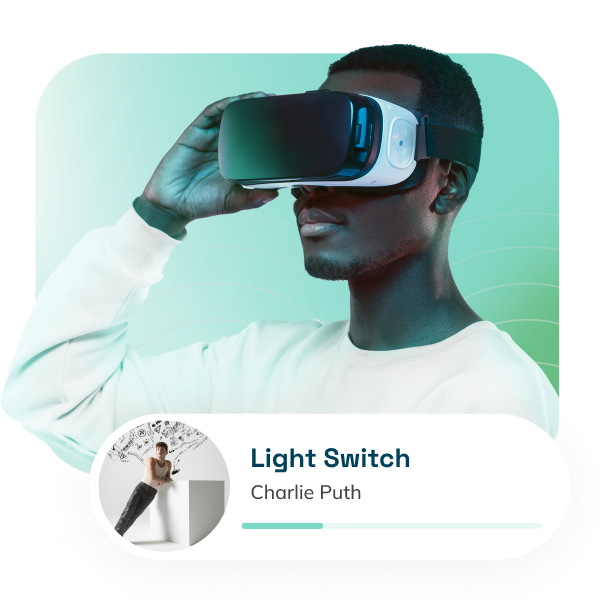
Increased engagement
& usage
3.2x
longer session times when listening to integrated music
Increased engagement
& usage
1.7x
more likely to return as a customer after 90 days when listening to music
Brand affinity, loyalty, advocacy
96%
of consumers are more likely to remember a brand if it is paired with music that fits the brand identity*
Who is listening?
Remember, it’s not about what music you like, it’s about what music will resonate with your customers in the digital environment you are creating for them.
What type of music?
Depending on your digital experience, it may be possible to find both royalty-free and popular commercial music that could fit the bill. The art is in putting the available options together in a way that meets your audience’s needs and your brand’s budget.
Recognizable vs music discovery?
When your preferred experience calls for major-label music, will your audience be best served by hearing today’s hits, throwback favorites, the freshest up-and-coming chart climbers, or a combination of these?

Music licensing is complex
While there are many options for sharing music with your customers, you may need to dedicate a hefty budget and six months to two years time to negotiate licensing directly with multiple rightsholders, send your customers out to a third-party platform, or use generic royalty-free music.
Whether you are sharing music in your app, in a blog post, or in your store or gym, you have to get permission and pay the rightsholders. Many small business owners stream directly from their Spotify accounts, but unfortunately, that is not a legal solution.
→ Learn more in Music Licensing 101
Intro to music licensing
Disclaimer: Please note this is not a substitute for legal advice, but a quick overview of the complex music licensing world.
Almost all the music you hear, and most likely the music you want to use, is copyrighted. This means that one or more parties own the rights to it. Using this music without paying the rightsholders can get your company into very expensive legal problems. In most cases, businesses will need multiple licenses for their company’s music usage, and in fact, may need multiple licenses for even just one song.
To start, one must understand that there are two copyrighted works in every recording. The first is the composition, which includes the notes and words. The composition is generally owned by the songwriters and their music publisher. The second is the sound recording, which is an artist’s recording of a composition. The sound recording is generally owned by the artist or record label.
In all cases, it is better to ask for permission than forgiveness.
Going Direct: Negotiating Deals for Music Licensing
The costs, legal hurdles, and time it takes to DIY music licensing for businesses.
Year 1
Legal + Music Consultant Fee: $100-$200K
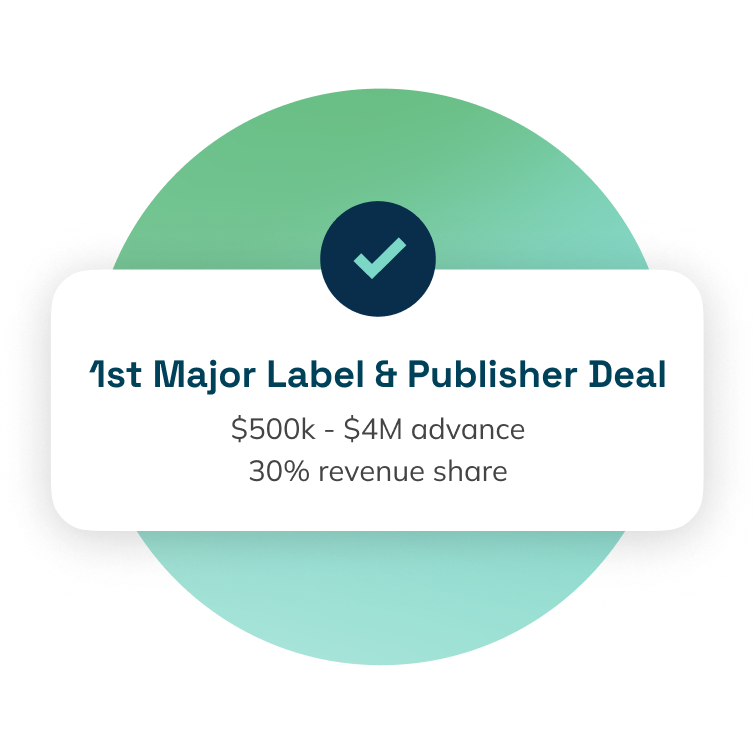
Year 2
Legal + Music Consultant Fee: $100-$200K
![]() Music Catalog Providers: $120K/year
Music Catalog Providers: $120K/year
![]() Royalty Administration Service: $150-$400k
Royalty Administration Service: $150-$400k
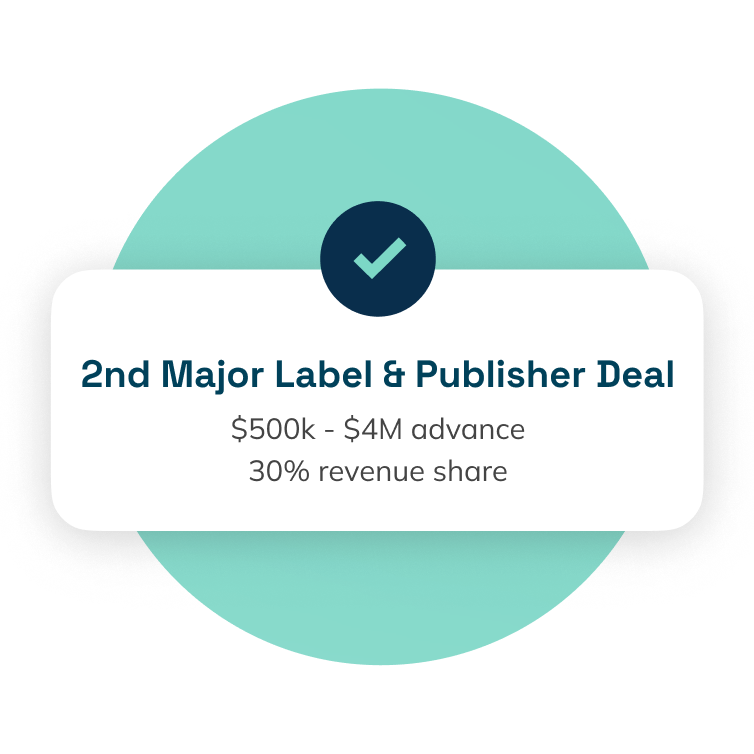
Year 3
Legal + Music Consultant Fee: $100-$200K
![]() Music Catalog Providers: $120K/year
Music Catalog Providers: $120K/year
![]() Royalty Administration Service: $150-$400k
Royalty Administration Service: $150-$400k
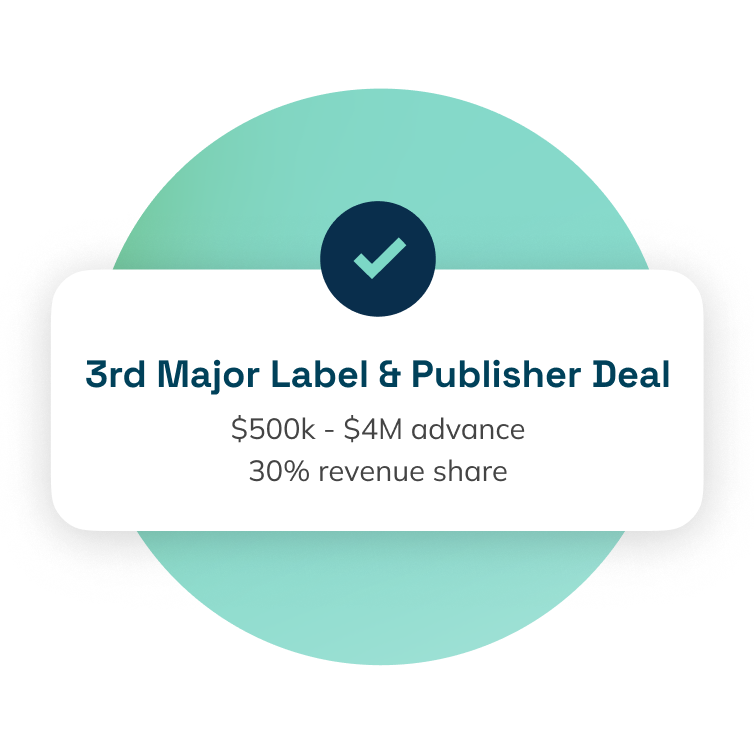
Warning
When companies neglect to account for music licensing, they can be held responsible for copyright infringement. No companies are exempt no matter how big or small.
Potential lawsuit: $10-$30M
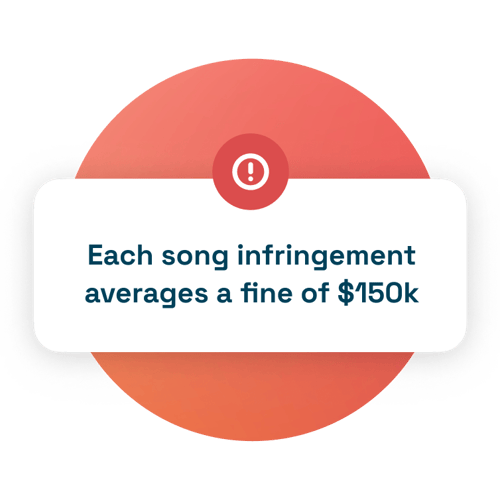

Why does it work?
Most people know intuitively that music is a motivator. And, there is an increasing body of research that shows music is performance-enhancing when paired with fitness. Music distracts from fatigue sensations, and athletes need less oxygen to do the same work. Pairing music and workouts delivers even stronger results when movements are synchronized to the music’s tempo.
And, not just any music will do . . .
Unlock the power of music with a UMS
Save time, energy, and resources trying to license music on your own. Work with the experts who have mastered the art of streaming licensed music for businesses and tap into the power of the Feed.fm unified music system (UMS) so you can stay focused on your core product.
With Feed.fm, you’ll get:
Pre-cleared music
Comprehensive music API
Reclaim your roadmap. The Feed.fm music API and plug-and-play SDKs are built to provide a seamless listening experience on any platform. Learn more about the Feed.fm music API
Data-driven curation
Say goodbye to endless searches for the right music. With the expertise of professional music curators, personalization algorithms, and data-driven selection, UMS eliminates any confusion in selecting licensed music for business use and provides valuable data and insights to drive faster product growth. Read about music curation strategy
